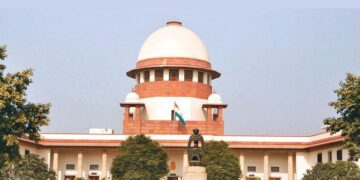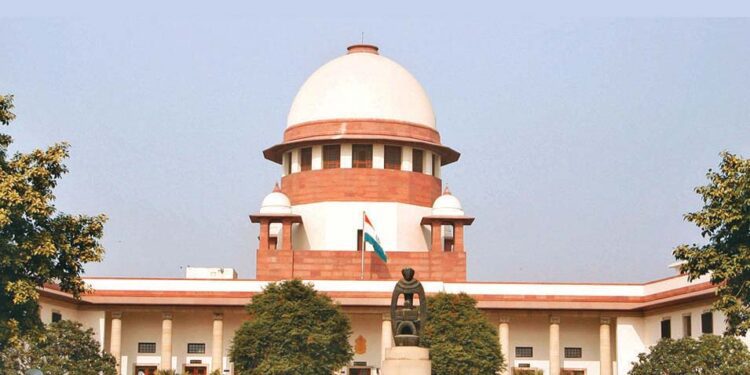Blitz Bureau
IN a landmark judgment, a seven-judge Constitution Bench of the Supreme Court headed by Chief Justice DY Chandrachud held by a 6:1 majority ruled that subclassification within the Scheduled Castes (SC) and Scheduled Tribes (ST) is permissible.
The Bench said that the further sub-classification of SCs and STs by states can be permitted to ensure the grant of quota to more backward castes inside these groups.
The judgment overruled the 2004 decision in EV Chinnaiah vs State of Andhra Pradesh, where a five-judge Bench had held that sub-classification was not permissible, arguing that SC/STs form homogenous classes.
The Bench, which included Justices BR Gavai, Vikram Nath, Bela M Trivedi, Pankaj Mithal, Manoj Misra, and Satish Chandra Sharma, delivering six separate judgments, held that the principles of social equality would entitle the State to provide preferential treatment to the most backward classes among the scheduled castes.
The Supreme Court was reviewing the constitutional validity of Section 4(5) of the Punjab Act, which depends on whether sub-classifications can be made within the Scheduled Castes or Tribes or if they should be treated as homogenous groups.
In 1975, Punjab issued a notification giving first preference in SC reservations to the Balmiki and Mazhabi Sikh communities, two of the most backward communities in the state. This was challenged in 2004 after the apex court struck down a similar law in Andhra Pradesh in E V Chinnnaiah case.
During the hearings, the top court explored the question of whether the children of more advantaged groups within the SC/ST communities should continue to avail of reservations. The court also examined the notion of homogeneity within these classes. The Union government submitted that it was in favour of the sub-classifications among SCs and STs. The majority verdict said the basis of sub-classification has to be justified by “quantifiable and demonstrable data by the states, which cannot act on its whims”.
The CJI wrote for himself and Justice Misra. Four judges wrote concurring judgments while Justice Trivedi dissented.
Article 341 of the Constitution allows the President, through a public notification, to list as SC “castes, races or tribes” that suffered from the historical injustice of untouchability. SC groups are jointly accorded 15% reservation in education and public employment.
















